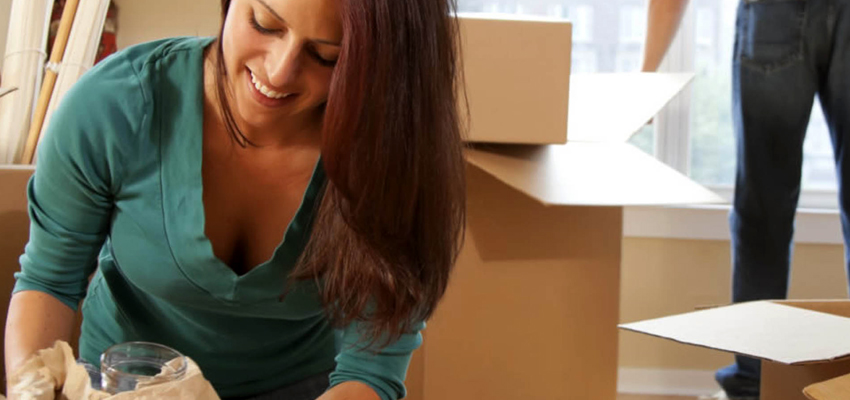
CALL NOW: 0155 244155
MOVING AND PACKING TIPS
- Get plenty of packing supplies in time – You will need lots of packing materials, no matter how small your house
is its in transit can supply you with boxes, removal crates and all the packing materials you will need. - You will need a variety of packing materials – Use strong sturdy boxes of different sizes, use bubble wrap and
newspaper for fragile items. Remember tape, scissors and a marker pen are essential. Wardrobe boxes and mattress
bags are also very useful. - Make an inventory – Keep track of what you are putting into each box and remember to label them, this makes it easier
to know which room the boxes belong in and makes unpacking so much easier as there is nothing worse than looking in
every box for the kettle as it hasn’t been marked. - Organize the packing – A single packing box should ideally contain similar items, try to fill a box with items from
the same room and pack one room at a time. Think about your new home and pack accordingly, it is crucial to label
every box. - Select the right size – Try to pack heavier items such as books and canned food in smaller boxes, and lighter items
in larger boxes. Avoid loading more than 50 pounds into one box as always remember you must lift it once moved.
• How to pack boxes – Heavier items should always be placed at the bottom and lighter items on top to prevent damage.
Use paper and bubble wrap for fragile items and wrap everything individually. Fill boxes but do not overfill them,
underfilled cartons can crush when other boxes are placed on top of them. Close every box and seal with tape
remembering what is in them so you can label the box. - Personal boxes and essential items – Every person should pack a box with general essential items, like snacks,
cleaning supplies, bed sheets that you will need right away. This box should be loaded last and unloaded first. - Keep personal items with you – Do not pack official documents, passport, driving licenses, birth certificates, financial
documents, cash and jewellery. Keep these items with you, as they are not easily replaceable. - What not to pack – Hazardous, flammable and explosive materials should never be packed as it is dangerous and illegal
for movers to transport them. Dispose of these safely, perishable items, such as plants and perishable food should not
be moved without prior discussion with your removal firm. If you are moving abroad, check with local legislation, as
you might not be able to move everything you could within the UK.
MOVING CHECKLIST
THREE WEEKS BEFORE:
- Plan for moving your pets – Moving can be very disruptive for pets so you may want to ask your vet for specialist advice on taking care of your animals to avoid distressing them.
- Clear out unwanted belongings – Planning a fresh start in your new home is an ideal time to have a good clear out of any unwanted belongings.
- Local charity shops will welcome smaller items such as books, ornaments or clothing.
- You should also be able to find local furniture recycling charities that will collect items you do not want to take to your new home.
- Start emptying your freezer – Remember that your freezer will need to be empty and defrosted before your move so try to use up as much of its contents as you can to avoid unnecessary waste.
TWO WEEKS BEFORE
- Arrange for meter readings and service disconnection/connection – Contact your essential service providers and notify them of your move. You will need to arrange for water, gas and electricity readings at your present home on the day of your move.
- You also need to make sure that all the services at your new home are connected on the day you move in.
- Transfer your phone number – Have your telephone number transferred or changed if necessary and arrange for your final bill to be sent to your new home.
- Get advice on aerials/satellite dishes – It is possible that your TV/FM aerials and/or satellite dish will not be suitable in the area you are moving to. Get specialist advice, but it is often cheaper for you to leave them behind and have new equipment installed at your new home.
- Arrange for your post to be redirected – Contact Royal Mail if you want to have your post redirected to your new home. They need at least five working days notice to arrange the service and you can have post redirected for between one month and two years.
- Organize the disconnection and reconnection of domestic appliances – Organize for a qualified plumber, electrician or gas fitter to disconnect your appliances (washing machine, cooker, gas fires (etc) in your present home and reconnect them in your new home.
TWO DAYS BEFORE
- Defrost your fridge and freezer – Empty and defrost your fridge and/or freezer. You need to make sure that they are defrosted at least 24 hours before removal because moving them while still frozen can damage them.
- Cancel deliveries – Cancel any regular deliveries you have to your present home, like newspapers or milk.
THE DAY BEFORE
- If you have a lot to move, or if time will be limited on your moving day, we may need to begin packing your belongings on the day before your move.
- Prepare as much as possible to make packing on your moving day easier.
- To make your moving day run as smoothly as possible, you should prepare some things in advance you can usually leave drawers and trunks with their contents intact, provided there are no breakable items inside.
- Don’t completely fill large chests or trunks with heavy items such as books.
- Liquids, oils and paints must be placed into sealed containers.
- We cannot transport inflammable substances for you so you’ll need to make sure that any petrol mowers, paraffin fires etc are drained before we can move them.
- Unless included as an extra service in your moving plan, you should take down curtains or blinds and pack them ready for the removal team.
- Household plants need to be transported in containers to protect them during the move. Although we’ll do everything, we can move them safely, any tender plants may become damaged in transit because we cannot protect them from the effects of extreme temperature change.
- Small furniture keys can easily go astray so leave them with the item of furniture and the removal team will secure them to each unit.
- Put together a ‘do not remove pile’ – Start putting aside the essential things that you will not want us to remove such as coats, handbags, snacks and cleaning materials.
- Some small valuable items such as jewellery, watches, trinkets, money, bonds, coins, stamps etc are not covered by removers’ insurance. Pack these separately and take them with you.
